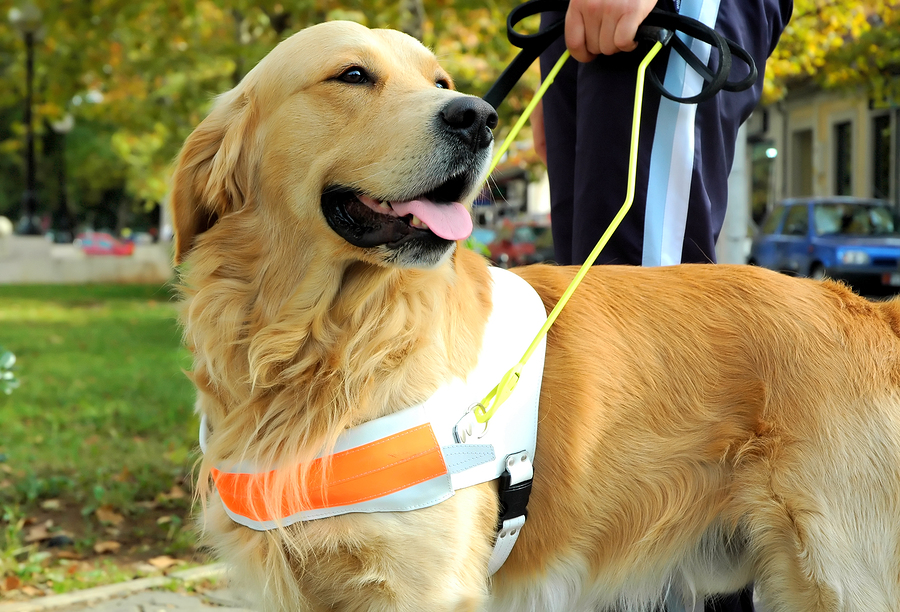There are only two places where you could claim a dog on your tax return. The first is as a medical expense and the second is as a business expense. Most importantly, it has to be a legitimate expense. Dog expenses claimed on a tax return are likely to get audited so you’ll want plenty of documentation.
You may never, NEVER, claim your dog as a dependent on your taxes.
Today I want to look at dogs as a medical expense. According to the IRS medical expense publication: You can include in medical expenses the costs of buying, training, and maintaining a guide dog or other service animal to assist a visually-impaired or hearing impaired person, or a person with other physical disabilities.
A seeing eye dog is an easily proved legitimate medical expense that you can deduct. The same goes for a hearing assist dog. Note that the IRS definition only discusses “physical” disabilities. Mental disabilities are conspicuously absent from this category.
If your service dog is meant to help with a mental disability, you may not win the deduction in the event of an audit. That doesn’t mean shouldn’t claim a legitimate mental health service dog. You just need to recognize that the bar is going to be set higher in the event of an audit.
Here’s a question to ask yourself—if you were to be audited for your dog expense, could you obtain written letters from your doctor that your dog is necessary for you to work or function? This is important.
I worked on an audit once where the man had claimed his dog as a medical expense. The IRS auditor was willing to allow the expense if the man obtained a letter from his psychiatrist. All it needed to say was that yes, the dog was part of the man’s treatment. Although the psychiatrist admitted that he had recommended that the man get a dog, he refused to issue a letter. He said the dog was a good idea, but not official treatment. We lost the case.
If you are self-employed, you may be able to claim your service animal as an impairment related work expense. To qualify here, you must have a physical or mental disability that functionally limits your being employed. Or, have a physical or mental impairment that substantially limits one or more of your major life activities such as performing manual tasks, walking, speaking, breathing, learning, or working. If you’re able to claim your service dog as a business expense in this way, it’s usually a better deduction for you than the medical expense deduction. (A business expense is a direct write-off, a medical expense has other hoops before you get any benefit.)
I cannot stress enough the importance of legitimacy here. You can’t just go online and purchase a “service dog” vest for your pooch and take him to work with you. The service your dog provides must be necessary for you to do your work in a satisfactory manner.
If you intend to claim a dog as a medical expense (other than a seeing eye or hearing assist dog), it is absolutely essential that you have the support of your doctor. I’d get the letter from your doctor before claiming the dog on your taxes. Keep it with your tax paperwork in case you need it later. If your doctor refuses to give you a letter, it’s a good hint that you shouldn’t try to claim your dog as a medical deduction.



